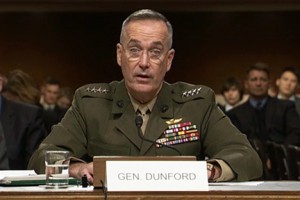Obama Still Clinging to 352,000 Afghan National Security Force Size Myth
Before the outbreak of green on blue killings that eventually led to a significant interruption in the training of Afghan security forces last September, it was impossible to read a statement from the US military or NATO regarding future plans without encountering a reference to a required 352,000 force size for combined Afghan National Security Forces. It was our training of the ANSF that was touted as our primary reason for remaining in Afghanistan because we need those trained troops available to take over security responsibility as we withdraw. I have been insisting since the interruption that it will be impossible to continue to claim that a functional ANSF force size of 352,000 can be achieved, as the known high rate of attrition continued during the training interruption. No new troop size prediction has emerged, but it was significant to me that references to the 352,000 force size claim had seemed to disappear.
Last night, President Barack Obama announced in his State of the Union address that he intends to withdraw about half the troops now in Afghanistan within the next twelve months, but he made no direct reference ANSF force size. Here are the three short paragraphs on Afghanistan in the speech as found in the transcript of his address:
Tonight, we stand united in saluting the troops and civilians who sacrifice every day to protect us. Because of them, we can say with confidence that America will complete its mission in Afghanistan and achieve our objective of defeating the core of al Qaeda. (Applause.)
Already, we have brought home 33,000 of our brave servicemen and women. This spring, our forces will move into a support role, while Afghan security forces take the lead. Tonight, I can announce that over the next year, another 34,000 American troops will come home from Afghanistan. This drawdown will continue and by the end of next year, our war in Afghanistan will be over. (Applause.)
Beyond 2014, America’s commitment to a unified and sovereign Afghanistan will endure, but the nature of our commitment will change. We’re negotiating an agreement with the Afghan government that focuses on two missions — training and equipping Afghan forces so that the country does not again slip into chaos, and counterterrorism efforts that allow us to pursue the remnants of al Qaeda and their affiliates.
Despite the specific force numbers cited with respect to US forces, Obama merely mentions “Afghan security forces” without telling us how many of them there will be. Resorting to the more detailed Afghanistan Fact Sheet released last night by the White House, however, shows that Obama still clings to the myth that there are 352,000 members of the ANSF. The Fact Sheet even goes to so far as to claim that this force level will be maintained for the next three years. I don’t believe I have seen this three year claim before: Read more →

